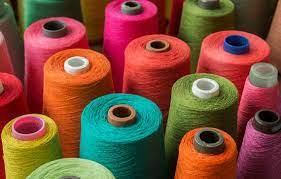Textile Enzymes Market Trends Indicating Shift Towards Eco-Friendly Processing And Lower Chemical Usage

Textile Enzymes Market is expanding as manufacturers adopt enzyme-based solutions to improve fabric quality, reduce environmental impact, and promote sustainable production. Enzymes, naturally occurring proteins that catalyze chemical reactions, play a crucial role in desizing, scouring, bleaching, and finishing textiles. The shift towards eco-friendly processing reflects growing consumer awareness of sustainable fabrics, regulatory pressure to reduce chemical usage, and technological advancements in enzyme engineering. Enzyme-based textile treatments offer a natural, cost-effective, and environmentally responsible alternative to traditional chemical-intensive processes, enabling manufacturers to achieve superior quality and sustainability across fabrics.
Drivers of Eco-Friendly Trends
The textile industry is increasingly adopting eco-friendly processing due to consumer demand and regulatory frameworks. Modern consumers prefer chemical-free, sustainable fabrics, motivating manufacturers to integrate enzyme solutions. Environmental regulations in North America, Europe, and Asia-Pacific promote cleaner production methods and limit harmful chemical usage. Enzymes reduce wastewater discharge, lower energy consumption, and minimize chemical exposure, aligning production with environmental standards. Technological innovations, including robust and versatile enzyme formulations, allow manufacturers to adopt green processes without compromising fabric quality or operational efficiency, reinforcing the shift towards sustainable textile manufacturing.
Applications in Denim Processing
Denim fabrics are a significant focus for eco-friendly enzyme treatments. Cellulases are used to achieve stonewashed, faded, or softened effects without damaging fibers. Traditional chemical methods for denim finishing consume large amounts of water and generate harmful effluents, whereas enzyme treatments reduce chemical usage, water consumption, and environmental impact. The rising popularity of sustainable denim and consumer preference for environmentally responsible apparel have driven manufacturers to adopt enzyme-based solutions, creating growth opportunities and encouraging innovation in denim processing technologies globally.
Applications in Cotton and Wool Fabrics
Cotton fabrics benefit from amylases and cellulases that remove starch, improve softness, and enhance dye absorption, reducing chemical usage. Wool fabrics rely on proteases to prevent shrinkage and maintain fiber integrity while minimizing chemical exposure. Enzyme treatments across cotton and wool fabrics support sustainable manufacturing by optimizing production efficiency, lowering environmental impact, and meeting consumer expectations for eco-friendly textiles. These applications demonstrate how enzyme-based solutions enable manufacturers to implement environmentally responsible practices while maintaining high-quality output.
Applications in Synthetic and Blended Fabrics
Synthetic and blended fabrics also adopt enzyme treatments to preserve structural integrity, achieve uniform coloration, and enhance dye absorption. Specialized enzymes are tailored for performance under industrial conditions, reducing the need for harsh chemicals and energy-intensive processes. The growing use of synthetic and blended fabrics in apparel, technical textiles, and industrial applications drives enzyme adoption, reinforcing the trend toward eco-friendly processing. Enzyme-based treatments offer precise control, operational efficiency, and environmental benefits, contributing to sustainable production practices across diverse fabric types.
Technological Innovations Supporting Eco-Friendly Practices
Technological advancements in enzyme engineering and biotechnology have enhanced the efficiency, stability, and versatility of textile enzymes. Modern multi-enzyme formulations combine several catalytic functions, reducing processing time, water usage, and chemical consumption. Innovations allow manufacturers to optimize textile treatments for denim, cotton, wool, and synthetic fabrics while implementing sustainable production methods. Continuous research and development have resulted in cost-effective and environmentally responsible enzyme solutions, enabling manufacturers to meet regulatory requirements, consumer expectations, and sustainability goals simultaneously.
Regional Insights
Regional trends influence the adoption of eco-friendly textile processing. North America and Europe, with strict environmental regulations and strong consumer awareness, prioritize enzyme adoption for sustainable production. Asia-Pacific, as the largest textile manufacturing hub, demonstrates rapid uptake due to high production volumes, increasing sustainability initiatives, and growing demand for eco-friendly textiles. Latin America and the Middle East are emerging markets gradually adopting enzyme-based processing, offering significant growth potential. Understanding regional regulatory frameworks, industrial infrastructure, and consumer preferences is essential for manufacturers seeking to optimize eco-friendly textile production globally.
Challenges and Market Considerations
Despite the positive trends, challenges remain in adopting eco-friendly enzyme-based processes. Advanced enzyme formulations can be costly, limiting access for smaller manufacturers. Enzyme activity is sensitive to industrial conditions, requiring precise control of temperature, pH, and chemical exposure. Competition among suppliers drives continuous innovation but increases investment pressure. Adapting enzyme solutions for new fabrics, blends, and advanced production techniques demands technical expertise and infrastructure upgrades. Addressing these challenges is essential for manufacturers to fully leverage enzyme-based solutions while achieving sustainable, high-quality textile production.
Future Outlook
The future of the textile enzymes market is promising, driven by the shift toward eco-friendly processing and lower chemical usage. Advances in biotechnology and enzyme engineering will improve enzyme efficiency, versatility, and cost-effectiveness across denim, cotton, wool, and synthetic fabrics. Sustainability trends, environmental regulations, and increasing consumer demand for chemical-free textiles will accelerate global adoption. Emerging markets with expanding textile production capacities are expected to contribute significantly to growth. Manufacturers investing in research, development, and strategic partnerships are likely to maintain leadership positions. Enzyme-based textile processing is poised to redefine conventional methods, enabling high-quality, sustainable, and environmentally responsible textile manufacturing worldwide.
- Art
- Causes
- Crafts
- Dance
- Drinks
- Film
- Fitness
- Food
- Spellen
- Gardening
- Health
- Home
- Literature
- Music
- Networking
- Other
- Party
- Religion
- Shopping
- Sports
- Theater
- Wellness


